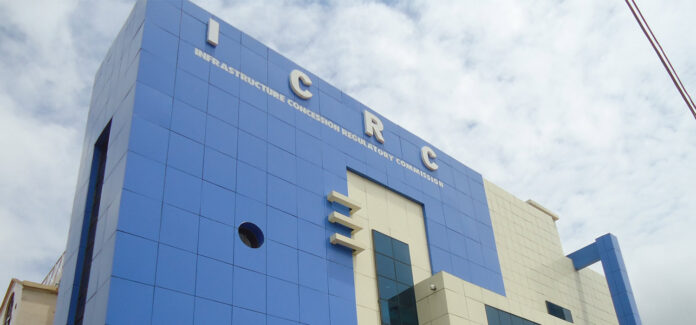Mr Micheal Ohiani, the Acting Director-General (D-G), Infrastructure Concession Regulatory Commission (ICRC), says the organisation has implemented 173 concessions worth nine billion dollars since its inception in 2008.
Ohiani said on Sunday in Abuja that ICRC has been able to issue 116 Outline Business Cases (OBC) certificates and 47 Full Business Case (FBC) certificates approved by the Federal Executive Council (FEC).
He, however, said that some of the challenges experienced over the years was the challenge of getting financing for long term projects.
“Our banks are used to short term financing facility, however, Debt Management Office (DMO) has recently come into the fray by providing infrastructure bond for most of these long term projects.
“So, if you do not have long term fund to finance the project, before you even start you are already going into default.
“In the sense that if you take short term loan to finance long term project, you will not be able to recoup the investment and start paying and there is a tendency for default.
“However, we are getting somewhere, we now have long term bonds.
“The financial institutions are also up to their responsibility, they now realise that you need to finance long term projects with long term fund. So I will say we are getting there.”
Ohiani said that another setback was the issue of project development and contract management.
He said that a project had to be properly structured and developed to attract investment, adding that Ministries, Departments and Agencies (MDAs) had over the years not been able to achieve that accurately.
The D-G, however, said that to make amends on that, the Ministry of Finance had made provision for project development in the budget line head.
As for contract management issues, he said it was not unexpected, taking into consideration that it was a recent development.
“However, the Nigerian Institute for Infrastructure and Public Private Partnership (PPP), which has been set up by ICRC is addressing that issue by providing capacity building to MDAs and other stakeholders.”
Speaking on the issue of policy somersaults and continuity of Federal Government projects, Ohiani said that for PPP projects that had never been a challenge.
This, he said, was because terminating a properly structured PPP project without following due process would amount to weighty consequences.
According to him, Section 11 of the ICRC Act provides that one can not arbitrarily terminate any PPP project without following due process.
NAN reports that the purpose of the OBC is to seek approval from the government for the preferred project and procurement options and to obtain funding if the project is not financially free standing.
It also contains justifications for the preferred project and procurement options and provides information regarding the expected value for money of the preferred project and procurement options.
Meanwhile, FBC is prepared for seeking approval prior to subsequent award of contract.
It reports on the conclusions of the Request for Proposal and set out the full scope and cost of the project.
The ICRC was established to regulate PPP endeavours of the Federal Government aimed at addressing Nigeria’s physical infrastructure deficit which hampers economic development.




